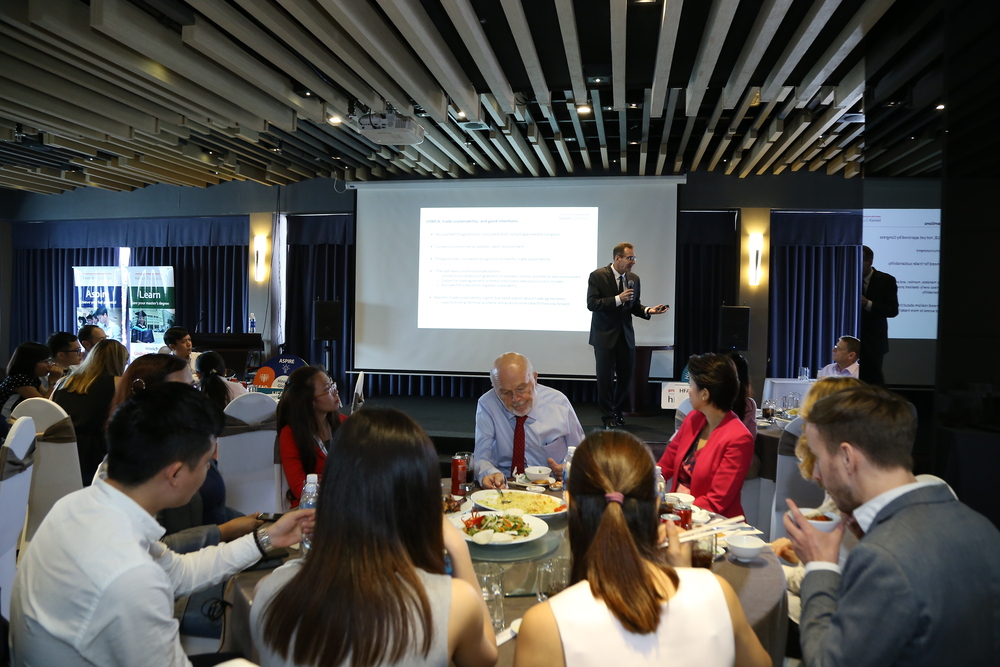Research Fellow holds workshop “Trade Today” for HFAA in Vietnam
Published 28 September 2019
Hinrich Foundation Research Fellow Stephen Olson gave a presentation on key developments shaping the international trade arena around the world to the Hinrich Foundation Alumni Association (HFAA) members on September 28, 2019, at Ho Chi Minh city, Vietnam.
The masterclass was organized by the Hinrich Foundation Alumni Association for its members to better understand the impact of trade and its implications. The workshop titled, “Trade Today”, was attended by around 50 members of HFAA.
During his presentation, Stephen Olson provided insights on the US-China trade war and its impact on the world economy. Simultaneously, in a lively exchange, the members of HFAA gave their valuable thoughts on the issue as well.

Olson also touched upon why companies have to re-think about their supply chain due to the ongoing trade war. He said the trade war has benefited few countries, but the main winner has been Vietnam, as the country witnessed several companies shifting their businesses to the country from China.
Further, Olson spoke on the rise of bilateral trade agreements and the concept of “mini-deal” between countries. He touched upon the US-Japan mini trade deal, whose purpose is to give greater market access to US agriculture growers and relief from automotive tariffs for Japan.
Taking cue from developments happening in the USMC negotiation, Olson said that the new-age trade deals have strong connection between trade and sustainability.
“The strong connection between trade and sustainability issues – such as labor and the environment – has become far better understood in the 25 years since the original NAFTA came into force. And the USMCA debate surrounding these provisions today provides a useful window into both the importance — and the immense challenges — we face in attempting to address sustainability in trade agreements,” Olson said.
During his presentation, Olson said that there is a need to reform the WTO as it has not been able to accommodate two different economic models, which has benefited China. However, he opined that “China does not bear sole responsibility for today’s turmoil. The systematic dysfunction reflects a collective failure on the part of all members of the global trade system to accurately anticipate just how complicated it would be to mesh China’s vastly different system with a Western-based system of rules.”
At the end of the presentation, a lively question and answer session was held which saw members of HFAA putting up questions on trade and policies and way forward on US-China trade war.

© The Hinrich Foundation. See our website Terms and Conditions for our copyright and reprint policy. All statements of fact and the views, conclusions and recommendations expressed in this publication are the sole responsibility of the author(s).
